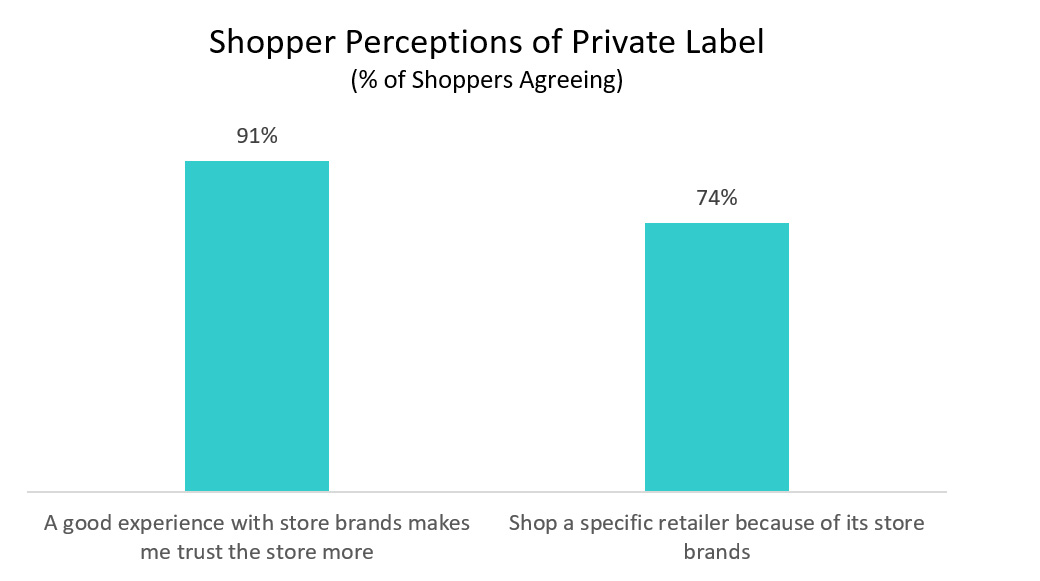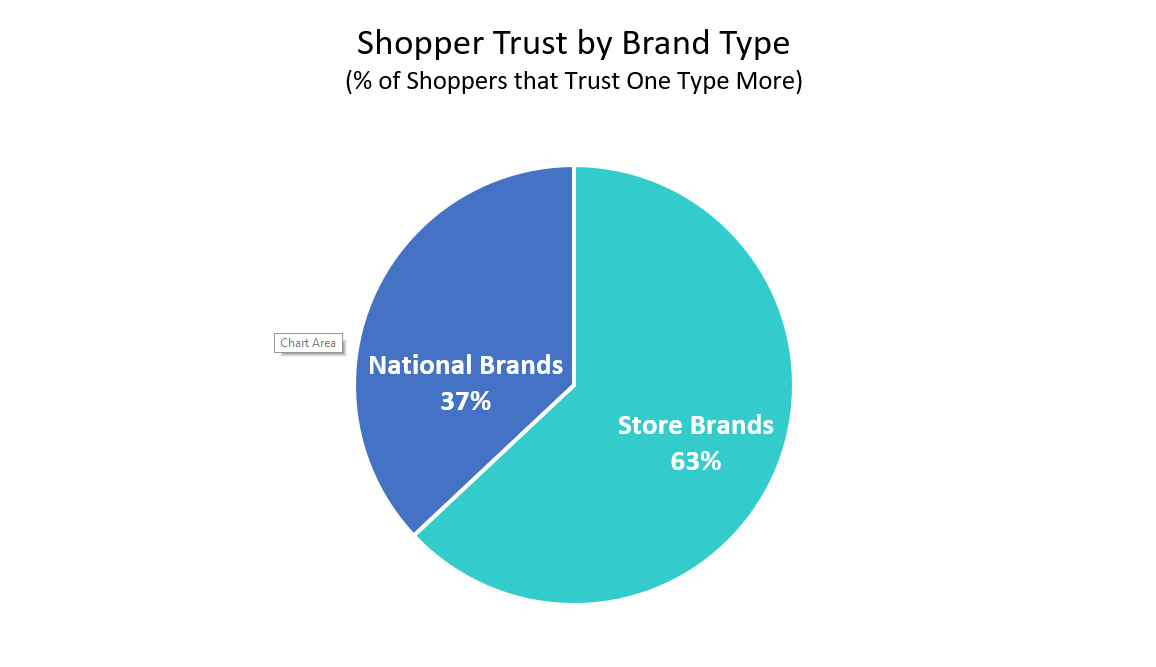
Shopper Insights: Private Label Gains During Inflation
Filed Under: Shopper
Kathleen Blum
Vice President, Shopper Insights Research
Take a look at your local grocery store shelf or gas station and it is clear that the US shopper is faced with inflation. In fact, this is the highest rate of inflation posted in the US in over 40 years. As shoppers see increases across a wide variety of goods, they begin to adjust their shopping behavior to make the most of their hard-earned dollars. So, let’s take a closer look at the impact of inflation on brands.
Private Label Sales Increase During Uncertain Times
Sales of private label or store brands tend to increase during inflationary periods and times of economic uncertainty, as shoppers demand more value for the dollars that no longer yield the same purchasing power that shoppers are accustomed to enjoying. As the rate of inflation has increased in the US, we see retailers enjoying high, and in some cases, record, sales for their store owned brands in 2022.
- Target reported a 36% growth in their owned brands in the 1st quarter of 2022 – the strongest growth the company has ever reported.
- Kroger recorded a record 13.6% increase in store brand sales for the month of March 2022 over the prior year.
Source: “As Inflation Rises, Private Labels are Quietly Taking Over Retail”, Modern Retail, February 4, 2022
Private Label Provides Benefits Beyond Price
Retailers recognize that private label brands provide benefits beyond price and have become part of what differentiates the retailer from competitors in a very competitive marketplace. In fact, almost ¾ of shoppers go to a specific retailer because of its store brands, showing that private label is creating shopper value and driving traffic for retailers. Additionally, a good store brand experience can also foster greater brand trust for the retailer.

Source: “Four Reasons You Should Make the Jump Into Private Label”, Convenience Store News, April 21, 2022
Brand Trust is Shifting
As shoppers gravitate to private label during uncertain economic times, they may stick with those brands permanently if they find the quality to be comparable or better than national brands. In fact, 63% of shoppers indicate that they trust store brands more than national brands because they view the retailer as standing behind their brands. This further strengthens the bond shoppers have with private label brands and the retailers behind these brands.

Source: “Four Reasons You Should Make the Jump Into Private Label”, Convenience Store News, April 21, 2022
What Does this Mean for Brands?
National brands will be creating strategies and looking for ways to better compete against private label brands through:
- Exclusive brands and/or SKUs that create a sense of exclusivity for retail partners as well as the shopper.
- Programs that emphasize quality when they can’t compete on price, as well as special price promotions to lure shoppers to the brand in the hopes of keeping them… much like store brands have done.
- Direct-to-Consumer models allow national brands to take some power back by providing consumers with direct access to their entire line, while also providing special, customized options that shoppers are looking for today.
While national brands are busy creating strategies to better compete against store brands, retailers will continue to compete with national brands by developing new, more premium private label brands that provide shoppers with offerings at different quality/price tiers as they continue to work to drive traffic, sales, and loyalty.
explore featured
Case studies

